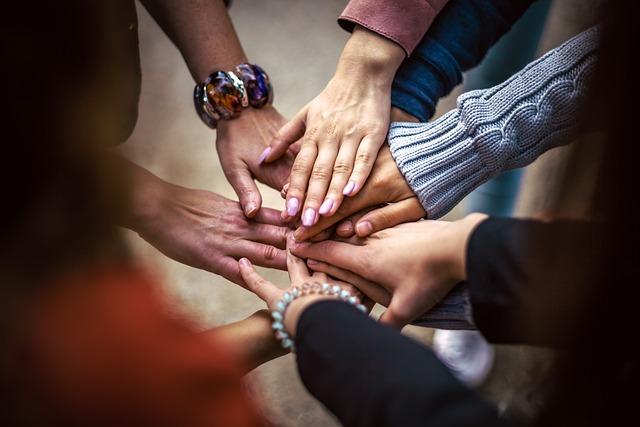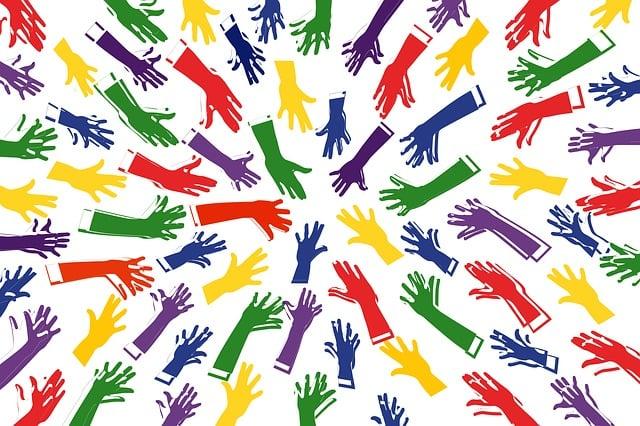In the heart of South Asia, Pakistan stands as a tapestry woven with rich cultural colors and deep historical threads, yet beneath this vibrant exterior lies a persistent fissure—a chasm of inequality that echoes through its society. From sprawling urban landscapes to remote rural enclaves, the disparities manifest in education, healthcare, and economic opportunities, creating a landscape where the fortune of birth often dictates the course of a lifetime. As the nation grapples with the challenges of modernity against the backdrop of tradition, the call to bridge this divide grows louder. This article delves into the multifaceted dimensions of inequality in Pakistan, exploring the root causes, the steadfast efforts of communities and organizations aiming to create change, and the collaborative approaches that hold the potential to usher in a more equitable future. By shedding light on both the struggles and triumphs of those navigating this complex terrain, we aim to foster a deeper understanding of the issue and inspire dialogue focused on bridging the divide.
Understanding the Roots of Inequality in Pakistans Social Fabric
The complex tapestry of inequality in Pakistan is woven from various threads—historical, economic, and social—each contributing to the broader landscape of disparity. Historical legacies continue to play a significant role, with economic policies from past decades favoring certain regions and communities over others. This has led to a situation where access to resources is unevenly distributed, fostering an environment ripe for social stratification. In urban areas, the divide between the affluent and the underprivileged is stark, often visible in the stark contrast between sprawling mansions and squalid slums, highlighting the urgent need for comprehensive reform.
Furthermore, cultural norms and traditional practices often perpetuate gender inequality, limiting opportunities for women and marginalized groups. Factors such as education, employment, and political representation remain largely skewed, creating systemic barriers. Efforts to bridge this gap require multifaceted approaches, including initiatives aimed at promoting inclusive education and equitable job creation. Below is a summary of key factors contributing to social inequality in Pakistan:
| Key Factors | Description |
|---|---|
| Economic Disparities | Unequal distribution of wealth and limited access to resources. |
| Gender Inequality | Cultural barriers limiting women’s participation in the workforce. |
| Educational Gaps | Inconsistent access to quality education across regions. |
| Political Underrepresentation | Low participation of marginalized groups in governance. |

Empowering Communities Through Education and Skill Development
One of the most impactful ways to address the entrenched inequalities in Pakistan is by focusing on educational access and skill enhancement. By introducing programs that target marginalized communities, we can create a ripple effect that empowers individuals and uplifts entire neighborhoods. Key initiatives include:
- Vocational Training Centers: Establishing centers that offer skill development in industries such as textiles, technology, and agriculture.
- Inclusive Education Programs: Tailoring educational content to be relevant to local contexts and accessible to all, including girls and children with disabilities.
- Community-Led Workshops: Facilitating workshops led by local experts to foster knowledge sharing and mentorship.
Furthermore, collaboration with non-governmental organizations (NGOs) and the private sector can amplify these efforts. By pooling resources and expertise, we can implement comprehensive education models that cater to diverse learning needs. Consider the following advantages of such partnerships in enhancing skill development:
| Partnerships | Benefits |
|---|---|
| NGOs | Access to grassroots organizations that understand community-specific needs. |
| Private Sector | Opportunities for internships and job placements that provide real-world experience. |
| Educational Institutions | Creation of curricula that align with market demands and technological advancements. |

Economic Inclusion: Strategies for Enhancing Access to Opportunities
Ensuring economic inclusion in Pakistan requires a multifaceted approach that addresses the systemic barriers preventing individuals from accessing vital opportunities. Firstly, education plays a pivotal role in leveling the playing field. By investing in vocational training programs and adult education, communities can gain valuable skills that directly enhance employability. Initiatives such as microfinance and small business grants can empower aspiring entrepreneurs, particularly women and marginalized groups, enabling them to start their own businesses and contribute to the economy. Furthermore, leveraging technology can bridge gaps, as digital platforms often provide immediate access to markets and information, which previously may have been inaccessible.
To cultivate an inclusive economy, collaboration across various sectors is essential. Partnerships among government bodies, local NGOs, and private enterprises can create effective frameworks for economic support. For instance, establishing community centers that focus on financial literacy can transform the financial habits of individuals, promoting savings and responsible spending. Additionally, policies that encourage corporate social responsibility (CSR) initiatives can incentivize businesses to invest in local communities, culminating in a cycle of support and economic uplift. The impact of these strategies can be profound, leading to the enhancement of overall societal resilience.

Policy Reforms for Sustainable Change and Social Justice
In the quest for social justice and to build a more equitable society, policy reforms serve as a catalyst for meaningful change. Addressing the multifaceted nature of inequality in Pakistan requires a holistic approach that encompasses various sectors, including education, health, and employment. To effectively tackle these challenges, we must prioritize:
- Inclusive Education: Implementing accessible educational programs that cater to marginalized communities.
- Healthcare Accessibility: Developing policies that ensure healthcare services are affordable and reachable for all, particularly in rural areas.
- Employment Initiatives: Creating job opportunities that empower disadvantaged groups and promote skill development.
Additionally, fostering community engagement is essential for amplifying voices that often go unheard. In this context, local governance must be strengthened to ensure citizen participation in the policymaking process. A proposed Community Feedback Mechanism (CFM) can be established, allowing citizens to evaluate and provide input on government policies. Below is a table showcasing the essential components of such a mechanism:
| Component | Description |
|---|---|
| Feedback Collection | Surveys and community meetings to gather public insights. |
| Analysis | Evaluating feedback to identify trends and concerns. |
| Reporting | Regular reports to stakeholders and the public on findings. |
| Policy Adjustment | Refining policies based on community input. |
To Conclude
As we reach the conclusion of this exploration into the complex tapestry of inequality in Pakistan, it becomes evident that the journey toward bridging the divide is both multifaceted and essential. The narratives of marginalized communities, the aspirations of the youth, and the resilience of those striving for equity illuminate the pressing need for collective action and systemic change.
Pakistan stands at a crossroads, where the decisions made today can pave the way for a more inclusive tomorrow. By prioritizing dialogue, education, and social reforms, we can dismantle the barriers that perpetuate inequality and foster a society where opportunity and prosperity are within reach for all.
In this vital endeavor, every voice matters and every effort counts. As we move forward, let us embrace the challenge of creating a balanced landscape that nurtures unity in diversity. It is not merely a goal but a shared responsibility, one that calls upon each individual, community, and institution to play their part. The path ahead may be daunting, but with determination, empathy, and collaboration, a transformed Pakistan—one grounded in equity and justice—can become a reality.



